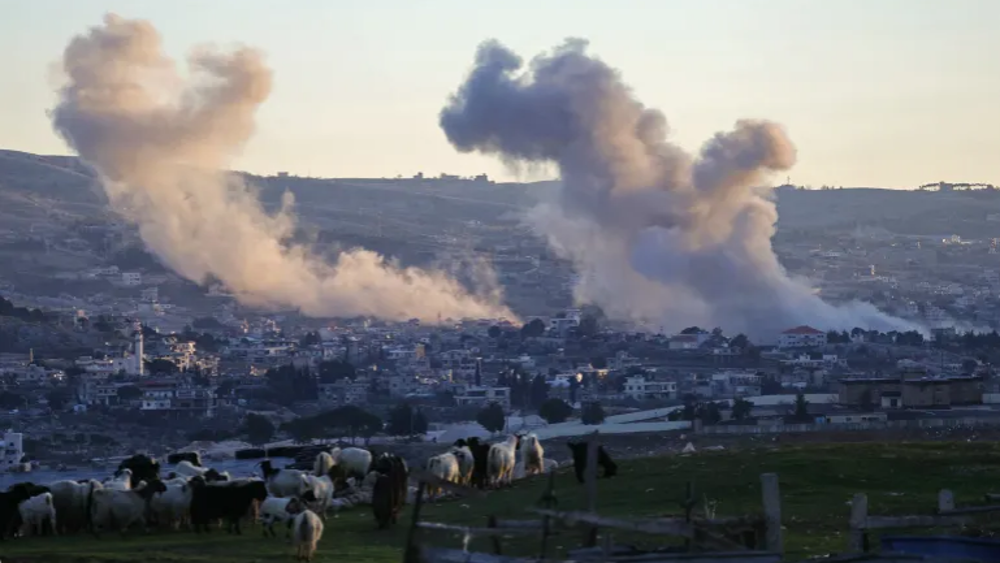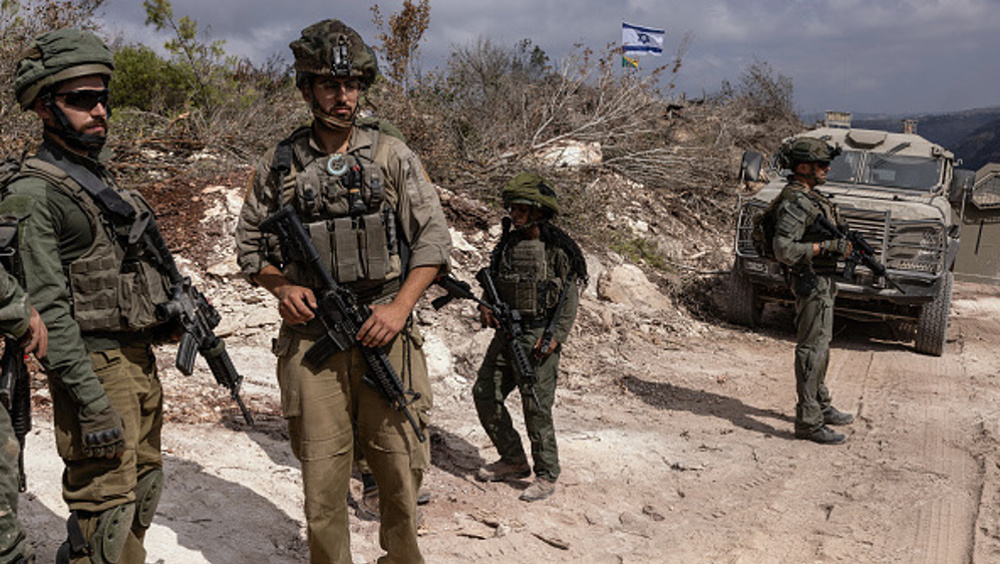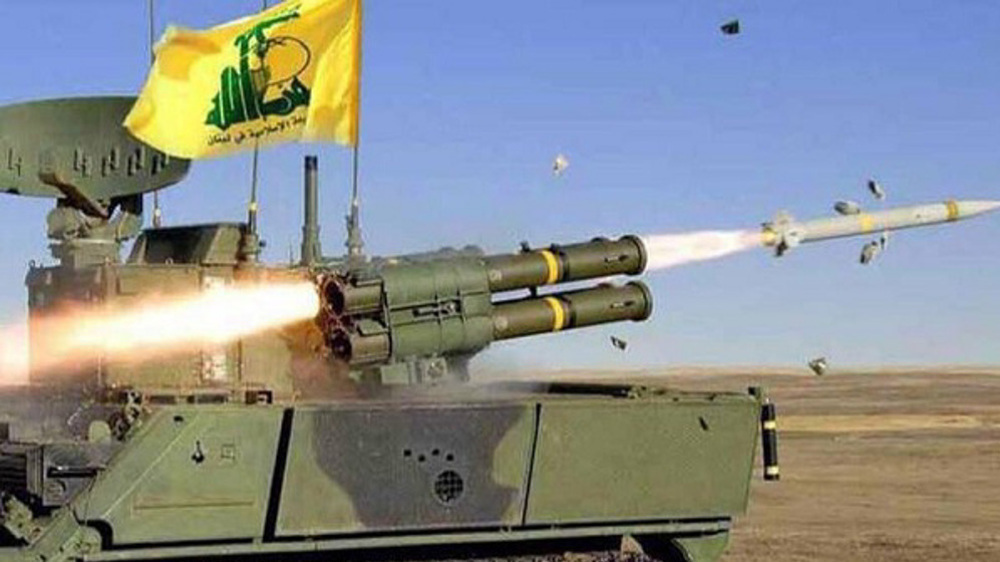‘Evil hummingbirds’: People in south Lebanon recount horror as Israel continues to breach truce
By Hiba Morad
Israel has been violating the ceasefire agreement in Lebanon without break, deliberately targeting civilian areas in southern Lebanon, locals told the Press TV website.
Despite drones incessantly buzzing over their homes, people in southern Lebanese villages say they will not abandon their homes after returning following the ceasefire reached late last month.
Speaking from Aytaroun, Abu Reda told the Press TV website that last Monday, the Israeli army deliberately fired upon him and several of his friends who had gathered in the old town of the village to inspect their homes. They were lucky to survive the attack.
Early on Friday, heavy attacks took place that continued throughout the morning, locals said.
Israeli forces fired machine guns at villages in the central sector of southern Lebanon, including Aita Al-Shaab and Ramiyeh. Overnight, several shells struck homes in Aitroun, resulting in damage.
At approximately 8:00 a.m. local time (06:00 GMT), Israeli forces launched a rocket at Aitroun, which locals described as a continued violation of the ceasefire agreement.
The explosion instilled panic among residents, prompting some to evacuate their homes temporarily.
Since Friday morning, Israeli military vehicles and tanks have been active in Aitroun, locals told the Press TV website, which had already endured heavy machine gun fire overnight.
Constant ceasefire breaches
Abu Reda is present in the southern villages of Aitaroun and Bint Jbeil every day. He said the Israeli army has been violating the ceasefire on a daily basis since it was announced late last month.
According to some reports, the regime has breached the truce more than 160 times, with the Lebanese resistance movement responding once as a warning to the occupation.
“Here in Aitaroun and the nearby towns like Maroun al-Ras, there are either air raids or machine guns fired at the towns and the people there. During the day, the gunfire and raids are limited. But during night time, the Israeli army starts randomly firing machine guns," he told the Press TV website.
"I am telling you about heavy attacks on houses and neighborhoods. Some of the families whose homes still stand returned for winter, they have no other place to go. They are civilians minding their own business. But the Israeli savage army tries to attack and terrify them at night."
Abou Reda added that Aitaroun, like Maroun al-Ras, Yaroun, and parts of Bint Jbeil and Mays al-Jabal, has been heavily damaged from booby traps used by Israel to detonate neighborhoods, as well as heavy shelling, raids, and the use of phosphorus bombs, which have rendered them uninhabitable.
"There are piles of rubble everywhere you go throughout the town. In certain areas, such as the old town—the oldest neighborhood in the village—the entire landscape consists of heaps of destroyed concrete, with not a single house remaining standing," he stated.
"We had to park the car some 300 meters away and walk on foot to reach destroyed homes there," he said, adding, "They bombed trees and green areas too, turning them into ashy burned soil."

Abu Reda, a resistance fighter who remained steadfast for 66 days in the border villages and stood against the Israeli regime alongside his fellow brothers, also spoke to the Press TV website.
“We are the sons of these towns; we are not mercenaries from other countries or nationalities brought here and paid, as is the case with the terrorist groups causing destruction and death in Syria or even the Israeli army," he said, speaking of his motivation to fight the occupation.
"We are Lebanese people; our grandparents and ancestors are Lebanese. We were born here and have lived here all our lives. The least I can do is protect our land and our people.”
International law experts have confirmed that the Israeli regime is flagrantly breaking international conventions by using banned weapons that use depleted uranium such as phosphorus bombs, smart guided bombs, and lately bunker-buster bombs which are designed to deeply penetrate the ground.
The bombing of the capital Beirut and its suburbs with missiles containing depleted uranium and chemicals not only aimed to destroy the infrastructure of the country but also poisoned the soil, air, water, and bodies of thousands of people, according to experts.
Deliberate attacks on inhabited neighborhoods
Speaking from the outskirts of Bint Jbeil, Souad told the Press TV website that as soon as night falls, none of the family members dares to approach the windows.
“We all stay in the main hall of the house because the Israeli army begins randomly firing at our homes and streets," she said, sharing her harrowing experience.
“On Thursday, they fired heavily at my car and it was destroyed with bullets."
On why she and her family would consider relocating to a safer area, she told the Press TV website.
“The Israelis must understand that we are resilient and steadfast. We are not going anywhere because this is our land. This is our home, and we have no other place to go," she noted.
"We had to stay in a school in northern Lebanon for the last two months of the war after enduring many attacks over the past year. However, it has become cold, and we want to live in our own home."
According to the principle of proportionality in international law, Article 51 of the UN Charter, even if there is a clear military target, it is not allowed to attack it if the expected harm to civilians, or civilian property, is excessive about the expected military advantage.
Not another 1978 occupation
Hassan, an electrical engineer, informed the Press TV website that he makes a daily trip to Aitaroun, like many others, to demonstrate to the Israeli army that the local population won't go away.
"I cannot forget what happened in 1978 when the Israeli army warned the people of this region against returning to their villages and subsequently occupied our land," he said.
"This will not happen again; we will not allow it to occur."

Hassan said although his home has been partially destroyed and his brother's home has been completely razed down, they still insist on showing up and making sure their homeland is not going to get reoccupied by the Zionist regime.
"I go to the village with my brother every day, along with other friends and acquaintances, to demonstrate that we are here and not going anywhere," he told the Press TV website.
"Once the 60-day ceasefire period is over, we will return to rebuild our homes and lives."
The evil humming-bird
Nine-year-old Mahdi refers to Israeli drones hovering in the skies of southern Lebanon as evil hummingbirds. He and his family were displaced during the war and recently returned to their home in the Baabda district to repair broken windows, clean the house, and resume their daily lives.
Mahdi told the Press TV website that the drones buzz continuously, both day and night. He mentioned that at night, the noise becomes so bothersome that he struggles to fall asleep.
“The buzzing sound seems so close that I feel like it is in the bedroom with me, or perhaps right at the window. But when I look outside, I cannot see it,” he said.
Mahdi lost three of his young friends at school in raids across Lebanon.
UNICEF has reported that Israel killed over 200 children in Lebanon amid its aggression over the past two months. As airstrikes continued to hit homes and residential areas across Lebanon, doctors are seeing an increasing number of children affected by the brutal Israeli aggression.
In addition, a few of the bodies of the children killed by Israeli air raids during the war are still missing while hundreds were reported as injured by doctors.
“The drones are flying above us non-stop on a daily basis, and the sound is so close at times that it feels as if they are right above you,” his mother, Jana, said.
Returning to their village, Khirbet Selem in the Tyr District, Jana and her family are determined to stay and never leave again.

“Here, we endure the irritating sound of drones. My extended family, who live in the neighboring city of Debbin, are disturbed by the drones and often have to seek refuge from the indiscriminate Israeli airstrikes, gunfire, and shelling,” she told the Press TV website.
On December 8, three individuals were killed in an Israeli raid targeting the Debbin area of the southern Lebanese town of Marjayoun. This attack occurred one day after an Israeli airstrike on the southern town of Beit Lif killed four people and injured six others.
Lebanon’s National News Agency reported last week that Israel violated the ceasefire 129 times.
Hezbollah Secretary-General Naim Qassem stated on December 5 that, despite numerous Israeli violations in Lebanon, the group wants the ceasefire agreement to succeed.
Last week, the Lebanese resistance movement targeted an Israeli military site at Ruwaysat al-Alam in response to "repeated ceasefire breaches" by the occupation forces.
In a statement after the retaliatory operation, Hezbollah said in addition to the continued violation of Lebanese airspace by hostile Israeli aircraft reaching the capital Beirut, the Islamic Resistance was forced to carry out an "initial warning defensive response" on Monday.
However, it remains to be seen if Hezbollah will respond again in the coming days as breaches continue in different forms and manifestations.
Bahraini police assaults crowds mourning loss of Ayatollah Khamenei
Iran posed no imminent threat to US: Pentagon tells Congress
Iran will hold no negotiations with US: Larijani
Despite Leader's martyrdom, Islamic Republic firmly in control and punishing the enemy
At least 31 killed in Israeli aggression on southern Lebanon after Hezbollah strikes
Iran writes to UN, warns about dire consequences for perpetrators following Leader's martyrdom
Hezbollah strikes occupied Haifa in retaliation for Leader's assassination
Ansarullah mourns Leader's martyrdom as 'great loss' caused by 'most wretched terrorists'















 This makes it easy to access the Press TV website
This makes it easy to access the Press TV website